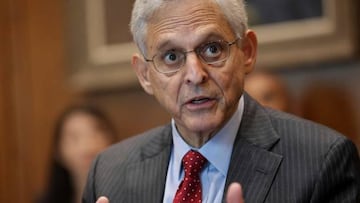January 6 hearings: Will the sessions have a political cost for Donald Trump?
With the first set of hearings of the House select committee on January 6th wrapped up, many are wondering if Donald Trump could pay a political price.


Last Thursday in primetime, the House select committee on January 6th wrapped up its eighth and final hearing of the summer. The public heard from two former White House officials, Sarah Matthews, who served as Deputy Press Secretary and Matthew Pottinger, who worked as the Deputy National Security Advisor. Both former Trump administration officials resigned their posts after the events of January 6th.
Now that the evidence collected by the committee, thus far, has been released to the public, questions are circling over whether Donald Trump could face a criminal, or at least political, price for his role in the Capitol attack.
The Controversy of Attorney General Merrick Garland’s Memo
An internal memo written by Attorney General Merrick Garland was published by MSNBC last week, which highlights the Department of Justices’ rules for investigating presidential and vice presidential candidates. These would apply to Donald Trump. These rules that limit the ability of the department to investigate candidates were imposed by Trump’s AG Bill Bar during his tenure.
“Finally, Department employees must also adhere to the additional requirements issued by the Attorney General on February 5, 2020, governing the opening of criminal and counterintelligence investigations by the Department, including its law enforcement agencies, related to politically sensitive individuals and entities,” reads the memo.
How has Trump responded?
In typical Trump fashion he has denied any wrongdoing for provoking the attack on the Capitol.
However, he may be getting nervous as those close to him say that he will announce his candidacy before September, to try and avoid avoid criminal prosecution until at least 2024. The fact that Garland extended the rule means that in order for an investigation to be started into Trump or for charges to be brought, the AG must sign off. Garland was widely criticized for making the extension but he may be able to justify the decision as a means to centralize power over the prospective investigation into a former president.
Related stories
During a news conference held by the Department of Justice last week, Garland said that “no person” is above the law, alluding to the possibility that Donald Trump could be investigated.
“We have to hold accountable every person who is criminally responsible for trying to overturn a legitimate election, and we must do it in a way filled with integrity and professionalism,” said Garland when questioned on the topic.

